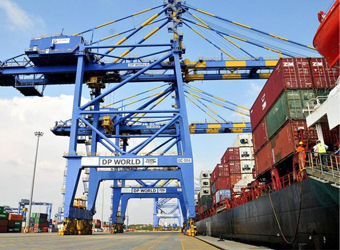Egypt’s exports to the U.S. under the Qualified Industrial Zones (QIZ) agreement registered around $556 million during the first five months of 2017, a government official said Monday.
The QIZ deal, implemented in 2005, allows Egypt to export from the zones to the United States free of tariffs and quotas as long as a certain percentage of Israeli goods is used.
In 2016, exports stood at $725 million, Ashraf Al Rabie, Head of the QIZ Division at the Egyptian Ministry of Trade, told Amwal Al Ghad.
Egypt looks to boost its QIZ exports and expand the reach of the agreement to include leather and some food products to export within the current year, Al Rabie said.
Authorities in Egypt are negotiating with the United States to expand the QIZ areas into more governorates in Upper Egypt, he added.
Qualifying Industrial Zones in Egypt are currently located in six regions; Cairo, Alexandria, Suez, Central Delta, Minya, and Beni Suef, the Egyptian official stated.
Egypt is the 26th largest garment and textile exporter to the U.S. in terms of quantity and the 20th in terms of quality, he said.
The Qualifying Industrial Zones (QIZ) agreement was established by the U.S. Congress in 1996 to build economic ties between Israel and its neighbors.
Since the agreement took effect in February 2005, it has allowed products jointly manufactured by Egypt and Israel duty-free entry into the U.S. Eligible products must have at least 35 percent of their value added by QIZ factories. Egypt must contribute at least one-third (11.7 percent) of this value add, while Israel must contribute 10.5 percent.
At the beginning of April 2017, Egypt’s government held talks to lower the Israeli input requirement to 8 percent.
As of February 2017, there were 961 registered QIZ companies, out of which the vast majority—765 companies, or 79.6 percent —produce textiles and clothing items. Of these, 196 produce ready-made garments. Because U.S. tariffs on textile and apparel goods are relatively high, production of these goods in QIZs is particularly attractive.
In addition, 70 companies (7.3 percent) operate in the processed agricultural products sector. Alexandria has the highest concentration of companies, hosting 235 companies (24.5 percent), while 10th of Ramadan has the next highest concentration with 166 companies.


